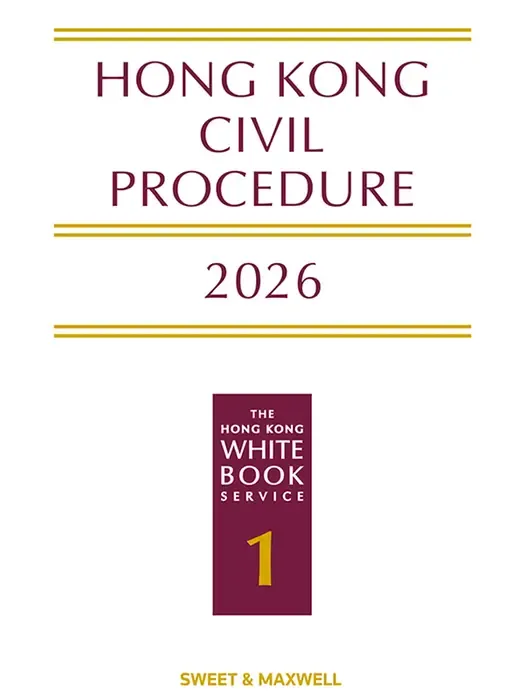New release: Hong Kong Civil Procedure 2026 (The White Book)
New developments in this edition include:
- Electronic Filing System Rollout:
The electronic filing system (iCMS) is nearing completion of its initial stages and will be used in civil appeal cases in the Court of Appeal, under the Court Proceedings (Electronic Technology) (High Court Civil Proceedings) Rules. Mandatory use is expected for all legally represented litigants from 2026.
- iCMS Functionality:
The electronic system provides comprehensive digital services including filing and receiving court documents, document inspection and search capabilities, cause book searching, and electronic payment processing.
- AI Technology Challenges:
The Judiciary is studying AI's benefits and risks, with concerns about AI "hallucinations" creating false submissions and potential over-reliance by both judicial officers and practitioners in complex cases. Some cautionary examples from other common law jurisdictions are cited in Part U of Volume 3 (Arbitration).
- Rulings under the Arbitration Ordinance:
The High Court continues to issue significant rulings under the Arbitration Ordinance, with recent cases like Company A v. Company C 2025 1 HKLRD 469, where the court addressed the need for worldwide interim relief.
- Court's discretion on a multi-factorial assessment:
Hong Kong courts are applying a flexible, multi-factorial approach to resolve conflicts between statutory insolvency regimes and binding arbitration agreements, following the Court of Final Appeal's framework established in Re Guy Lam.
For further information, click here
-----------------------------------------------------------
